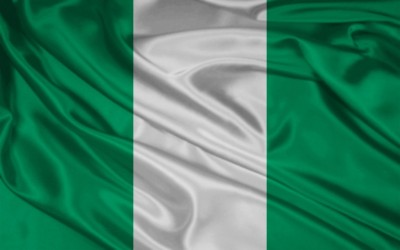
President Buhari’s Socialist welfare leanings could be shaping Nigeria up to become the next Venezuela.
In his second stint as president, Muhammadu Buhari is still not realizing that mere will-power or ‘body language’ will not win against the force of free market.
His preference for sticking with controlled markets, rather than accelerating reforms towards freely determined markets show that he is not quite the messiah that Nigerians have come to expect. These controlled and distorted markets, with their artificial prices are bringing Nigeria’s economy down to its knees.
A key feature of a distorted market is the existence of two prices and two markets for one product, which create arbitrage opportunity. People buy in one market (often the lower-priced govt controlled one) and sell in the other, for a higher price.
The second market often exists because supply and demand at the original market does not match. It doesn’t match because there is either way too much demand because price is low, or supply is too little because price is not competitive enough.
Although petrol prices have been pegged at N86 (or 43 cents) a litre, consumers have found it increasingly difficult to get the commodity at that price. Over the last few days prices have hovered at between N150 and N200, more than double the price fixed by the government.
Norway, the 3rd largest energy exporter in the world sells petrol to its citizens at $1.63, almost 4 times what is sold in Nigeria. The US sells for 66, cents nearly double that price.
Nigerian petrol marketers would often happily hoard the product whenever the opportunity arises, and wait for better conditions to sell at a higher price.
The smarter ones take products destined for Nigerian market to sell to neighboring countries where prices are higher.
Because of Nigeria’s distorted market and pricing system, the country is suffering an incomprehensible scarcity of petrol, while the rest of the world is drowning in too much oil.
In the same way a black market for foreign exchange was strengthened after government tightened its grip on the exchange rate, the black market for petrol is now taking over the streets.
Somehow, the government still thinks that the way boost supply of the product is to interfere even more and squeeze the independent/private suppliers out of the market, rather than release its chokehold on the product’s price. It now plans to allocate 78% of import quotas to the state oil company. A move that has irked the independent marketers.
Right now, there is a tussle for market share in the petrol distribution industry between the government and private individual suppliers which has further constricted supply. The consumers who continue to suffer scarcity as sellers refuse to sell, are the only victims in this fight.
The effect of controlled markets is having even more dire consequences for the country.
Nigeria has remained in perpetual darkness as gains in the amount of electricity generation steadily fall.
Independent electricity generation and distribution companies are refusing to produce more power because the prices at which they can sell their electricity has been fixed by the government. An attempt to increase the prices to make them more economically viable met with resistance and a summon to the senate.
The price for gas, an indispensable input for power generation is also fixed. Gas producers are pussy-footing with regards to capacity expansion even though the potential market is humongous, and the business case for investment in gas is as clear as sky.
As much gas as they already produce is snapped up by gas hungry plants and manufacturing companies seeking to reduce costs.
Although the gas companies can expand and sell much more, they are hesitating because there is little incentive.
There is also a lack of investment in electricity transmission because it is still being fully controlled by the government. Meanwhile, the blackouts linger.
Last Thursday, electricity generation at the main grid fell to zero due to system collapse that has become a rathe regular occurrence.
All these mean that productivity is plunging, fuel queues are longer, frustration is rising, companies are shrinking, and unemployment is rising.
The post above and its ensuing comments, if any, is purely the opinion of the writer(s). It therefore should never be considered as an investment advise of any sort. If required, readers should please consult a competent professional financial adviser for any investment decision.


The only company producing our raw materials is rationing supply because they have become a monopoly. No body is willing to import any raw materials knowing some competitors will have access to import at N199 to the dollar. We in the manufacturing industry have been saying this since last year allow the currency to find its level and let businesses plan. Economy wise this govt has lost the plot